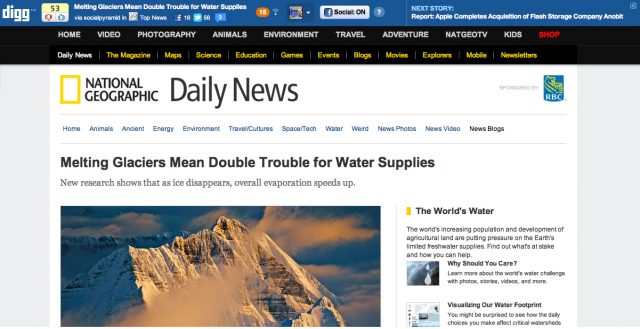The Facebook “Frictionless” Sharing Apps Trickle Out: Digg Is Next
Facebook took its sweet time this fall; now, in winter, it’s launching two interlinked products: Revamped profile pages, now called Timelines (which are being deployed this week), and “frictionless” open-graph apps that share user activity to Facebook automatically. But it’s starting to pick up the pace.
On the outside app developer front, about 20 lucky partners got to participate in the new open graph, starting in September with some default actions: “Read” (e.g. the Washington Post), “watch” (e.g. Netflix) and “listen” (e.g. Spotify). Here’s the list.
Those early partners have benefited hugely from their early participation, which effectively gave them exclusivity over competitors who didn’t make it into the launch.
For instance, Yahoo has had 12 million Facebook sharing opt-ins so far, and today says it’s extending “read” sharing beyond Yahoo News to 26 of its other sites.
Only a few other sites, such as the Huffington Post (“read”) and Yandex (“listen”), have been allowed to launch their new open -graph apps since September.
Today, news-voting site Digg (yes, that’s a “read”) goes live.

The new Digg Social Reader runs off a toolbar rather than as a Facebook “Canvas” app — which means that when you click on a Digg link from Facebook, you go directly to the link, rather than reading it within Facebook. Like other frictionless apps, after you give Digg permission once, it is allowed to continue to send all your reading activities to Facebook until you tell it to stop.
For context: Despite being further behind the curve than it used to be, Digg still has 17 million unique users.
Digg actually has a tumultuous history with toolbars. At the tail end of its glory days, users got extremely angry about the “Diggbar,” which was a Digg-branded iFrame that wrapped Web pages when users visited them via the Digg site. Last year, when Digg founder Kevin Rose took over as CEO (he’s since left the company), his first act was to kill the Diggbar.
In an interview with AllThingsD, Digg VP of Engineering, Ben Folk-Williams, said toolbars aren’t really so bad anymore. The new Digg toolbar is smarter about knowing what page it’s on, and behaving politely. Plus, other services such as StumbleUpon have used toolbars to great effect, without offending users.
The new Digg toolbar has a big fat button that indicates whether social features are on or off. When they’re on, everything you do on Digg gets shared to Facebook.
Compared with the publishers and content hosts that are already using frictionless sharing, Digg is a bit different. As an aggregator, Digg doesn’t host any content — it’s merely a set of pointers to Web pages that its users and algorithms think are interesting.
The Digg Facebook integration is a social curation layer on top of a larger Digg audience curation layer. Folk-Williams said he thinks that’s an asset, because Digg can offer more diversity of sources.
Plus, Folk-Williams said, Digg-style content — top 10 lists, tabloidy headlines, etc. — already seems to be quite popular on open-graph news apps.
As for app developers that are using custom verbs instead of “read,” “watch” or “listen,” some of them are now telling us that they’ve been cleared to launch in early January. Facebook has said such apps are due “in the coming weeks.”
Please see the disclosure about Facebook in my ethics statement.









